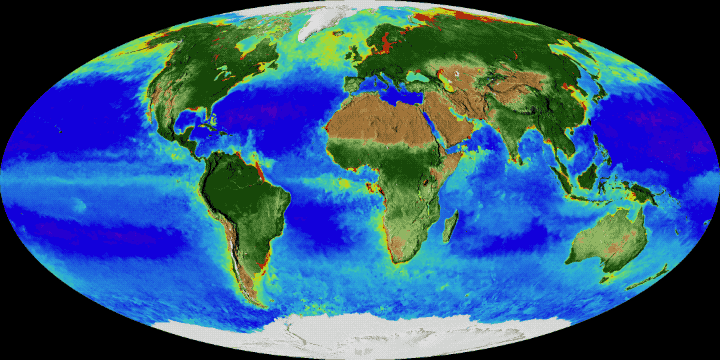Scientists claimed that Earth was once a water world filled with a massive global ocean. They believe their discovery could have serious effects on current theories as to how life evolved on the planet. Scientists from the University of Colorado Boulder presented their findings through a new study, which was published in the journal Nature.
Discovering Earth's Early Form

According to the scientists, discovering that Earth may have been covered in water was a bit of an accident. Originally, the scientists were trying to measure the temperature of Earth during its early years. To do so, they measured the temperature of rocks that were about 3.2 billion years old. Based on their readings on the rocks, the scientists discovered that the rocks had features that indicated that they were once underneath ancient oceans.
"There are no samples of really ancient ocean water lying around, but we do have rocks that interacted with that seawater and remembered that interaction," Benjamin Johnson, the co-author of the study said in a statement.
Emerging Supercontinents

Based on their findings, the researchers concluded that around 3.2 billion years ago, the Earth, which is currently 4.5 billion years ago, was once covered in vast oceans. Although supercontinents or large landmasses have started forming during that time, many of them were still underwater.
The scientists believe that these landmasses only started emerging from the global oceans to become continents due to tectonic movements that pushed them out of the water. Unfortunately, it is not yet clear exactly when this global geological motion occurred.
Changing Views On Evolution Of Life
According to the scientists, if Earth really were covered in ancient oceans billions of years ago, it would change current theories regarding the formation of life. It is widely believed that microbial life on Earth emerged in pools of freshwater. However, if the entire planet was covered by global oceans, this means that it didn't have dry land that could support freshwater.
"The history of life on Earth tracks available niches," geobiologist Boswell Wing, the co-author of the study, explained. "If you've got a water world, a world covered by ocean, then dry niches are just not going to be available."









